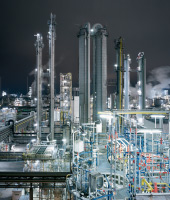Underlying Economic Conditions
The global economy will experience slightly higher growth in 2015 than in the previous year, according to the Organisation for Economic Co-operation and Development (OECD). Global GDP is expected to rise by 3.7 percent (2014: 3.3 percent), and the OECD estimate for 2016 is 3.9 percent. According to the IMF, upward momentum in 2015 will mainly come from emerging markets, with an increase of 4.3 percent. Advanced economies will deliver GDP growth of 2.4 percent.
US Economy with Robust Growth
The OECD projects that growth in the USA will continue over the next two years. Factors sustaining momentum are the reindustrialization of the US economy, gains in employment and higher consumer spending. The OECD expects output to grow by 3.1 percent. For 2016, the OECD estimate is 3.0 percent.
GDP Trends in 2015

Sources – worldwide: OECD; Asia: ADB; China: ADB; India: ADB; Japan: OECD; USA: OECD; Europe: OECD; Germany: OECD
Asia Puts Greater Emphasis on Sustainable Economic Expansion
In 2015, economic output in Asia will increase at a rate similar to last year. According to the Asian Development Bank (ADB), Asian economies will expand by 6.4 percent compared with 2014. In China, the days of double-digit growth are over. Nevertheless, the country’s economy is still growing at a high single-digit rate. The ADB expects China to post a rise of 7.4 percent. For 2016, the OECD anticipates a gain of 6.9 percent. The new government in India appears to be introducing necessary economic reforms, a move that will provide new impetus to the Indian economy. The ADB expects GDP in India to rise by 6.3 percent in 2015. Analysts expect the Japanese economy to pick up again slightly in 2015, after last year’s weak growth. The OECD forecasts growth of 0.8 percent year on year, and 1.0 percent for 2016.
Europe Continues to Recover in 2015
Europe will continue on its path to recovery in 2015, according to the OECD. However, growth will still be impeded by high unemployment, fiscal consolidation in individual countries and too little investment spending. The OECD anticipates GDP growth in Europe to be 1.1 percent in 2015. Economic output could gain more momentum in 2016, with the OECD projecting a possible increase of 1.7 percent. Economists expect the German economy to also expand by 1.1 percent. For 2016, the OECD projects growth of 1.8 percent. A sustained low level of oil prices, though, could ease the cost burden on businesses and increase consumer purchasing power. Both factors together could have a positive influence on growth.



